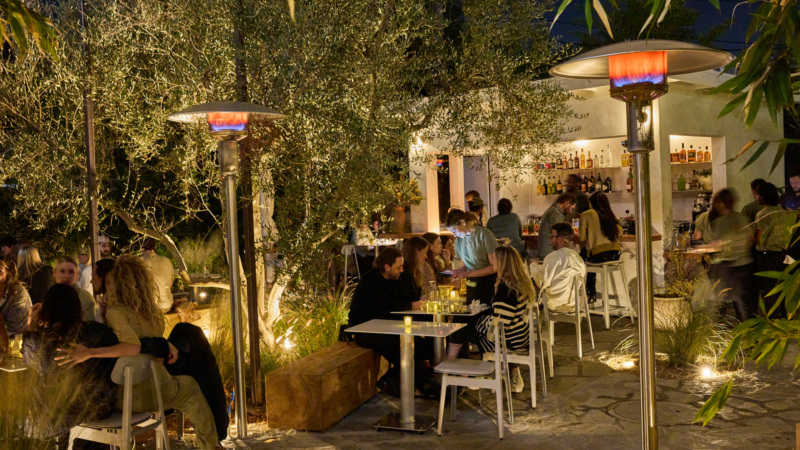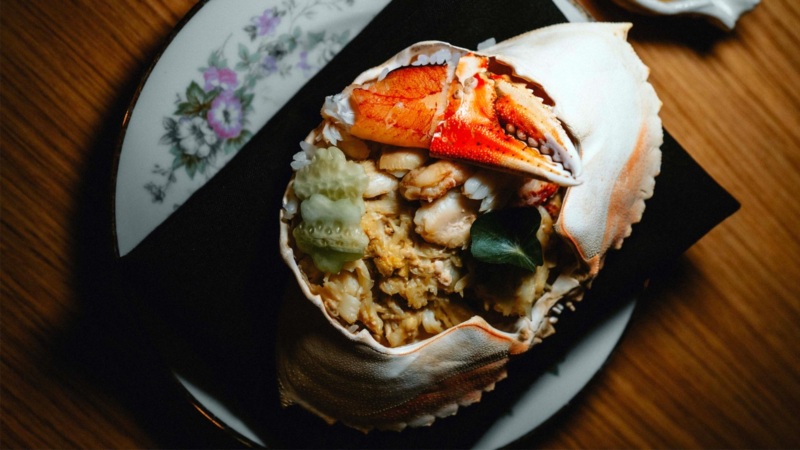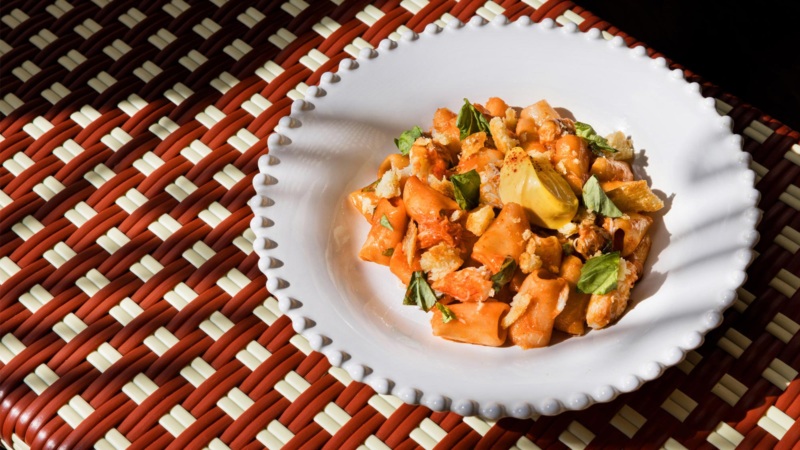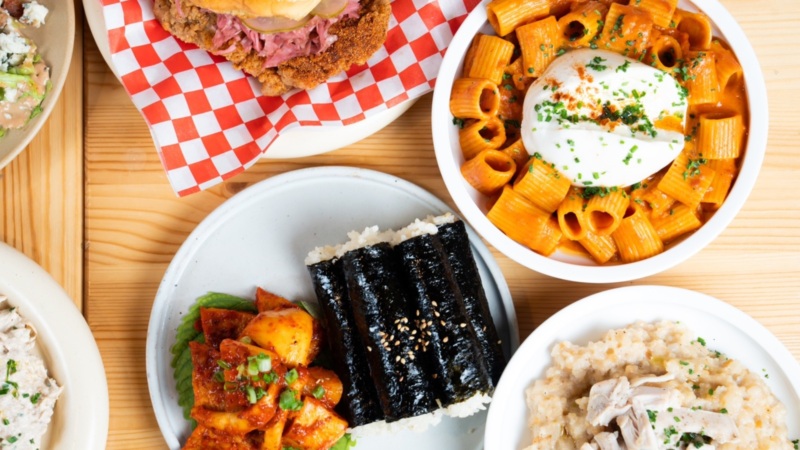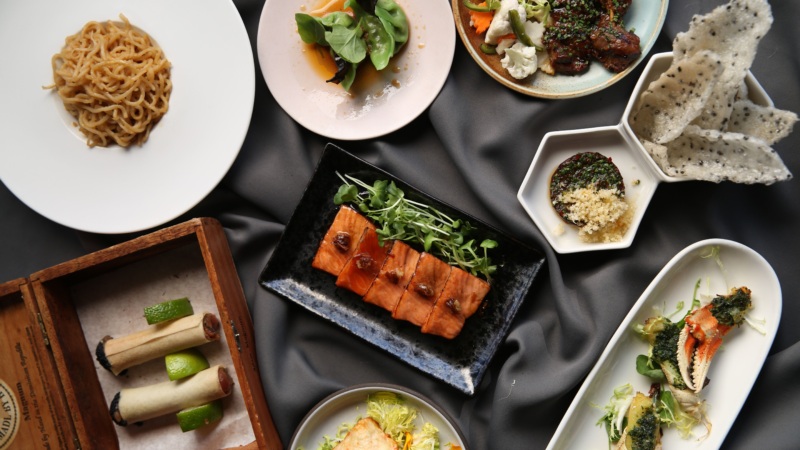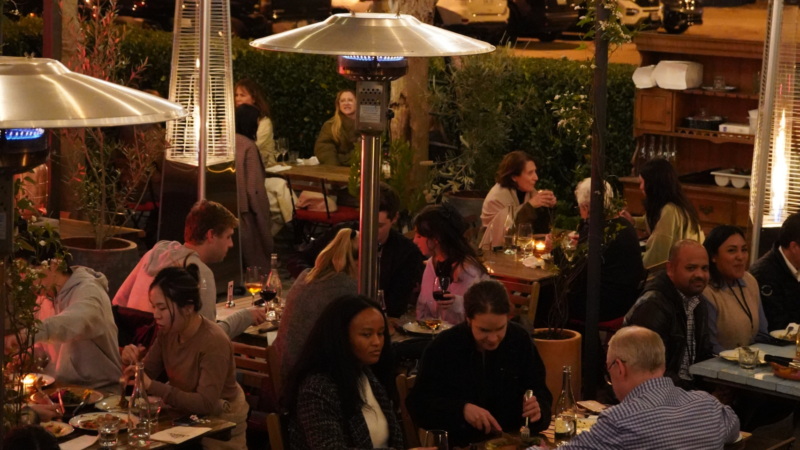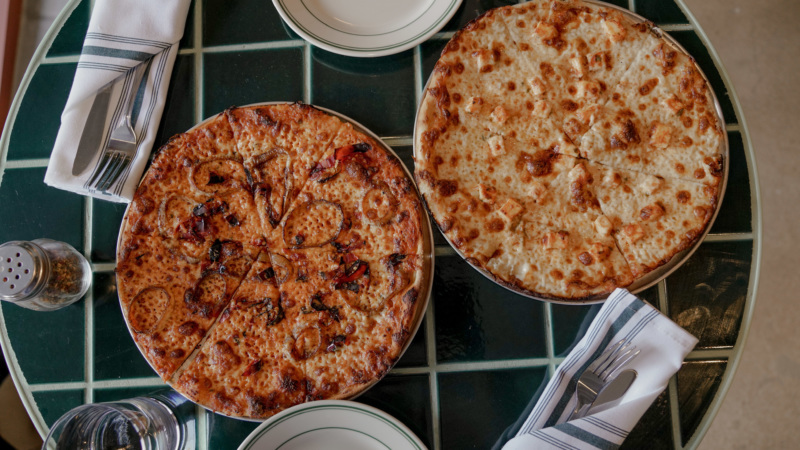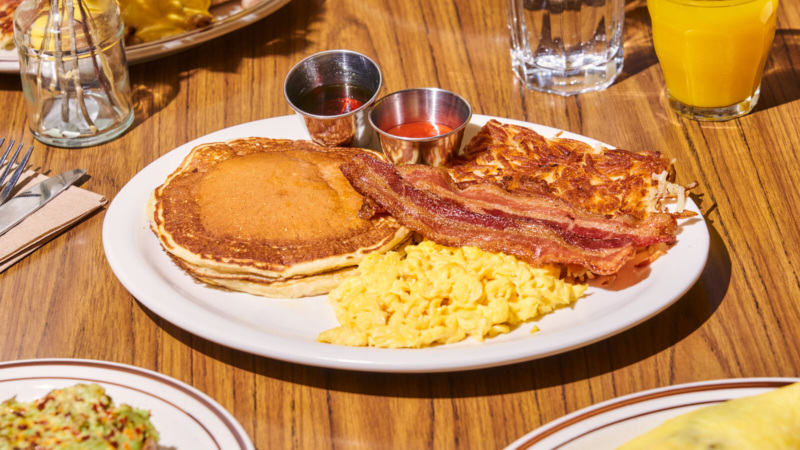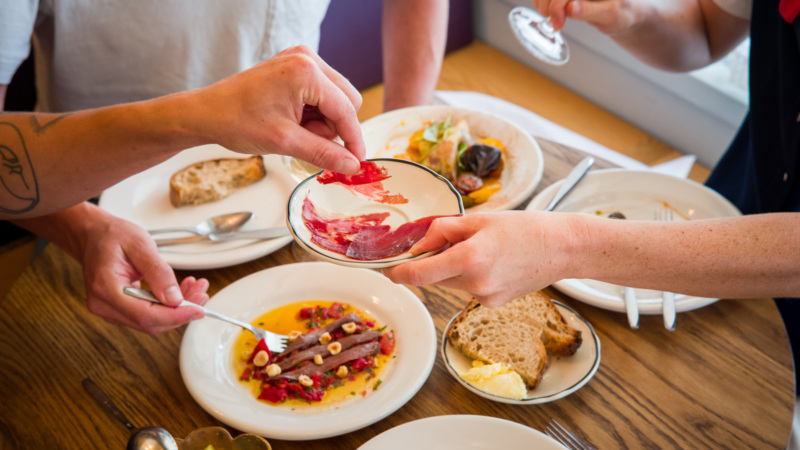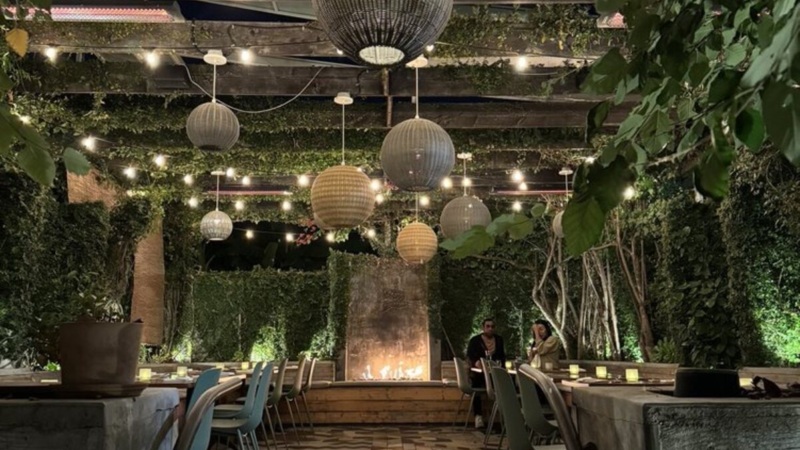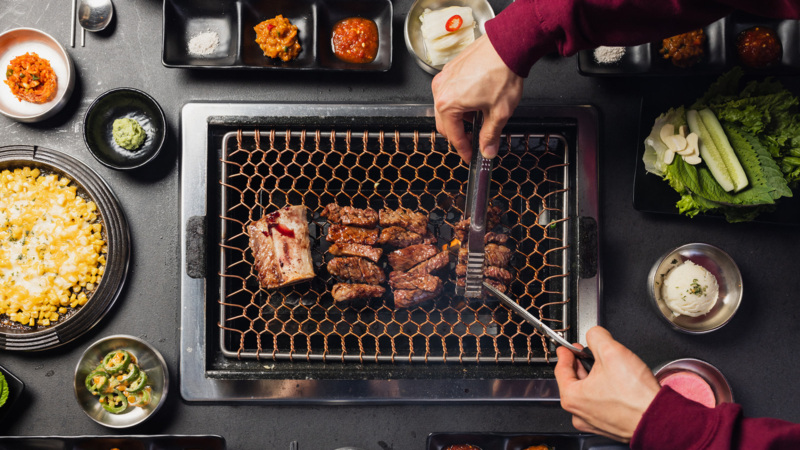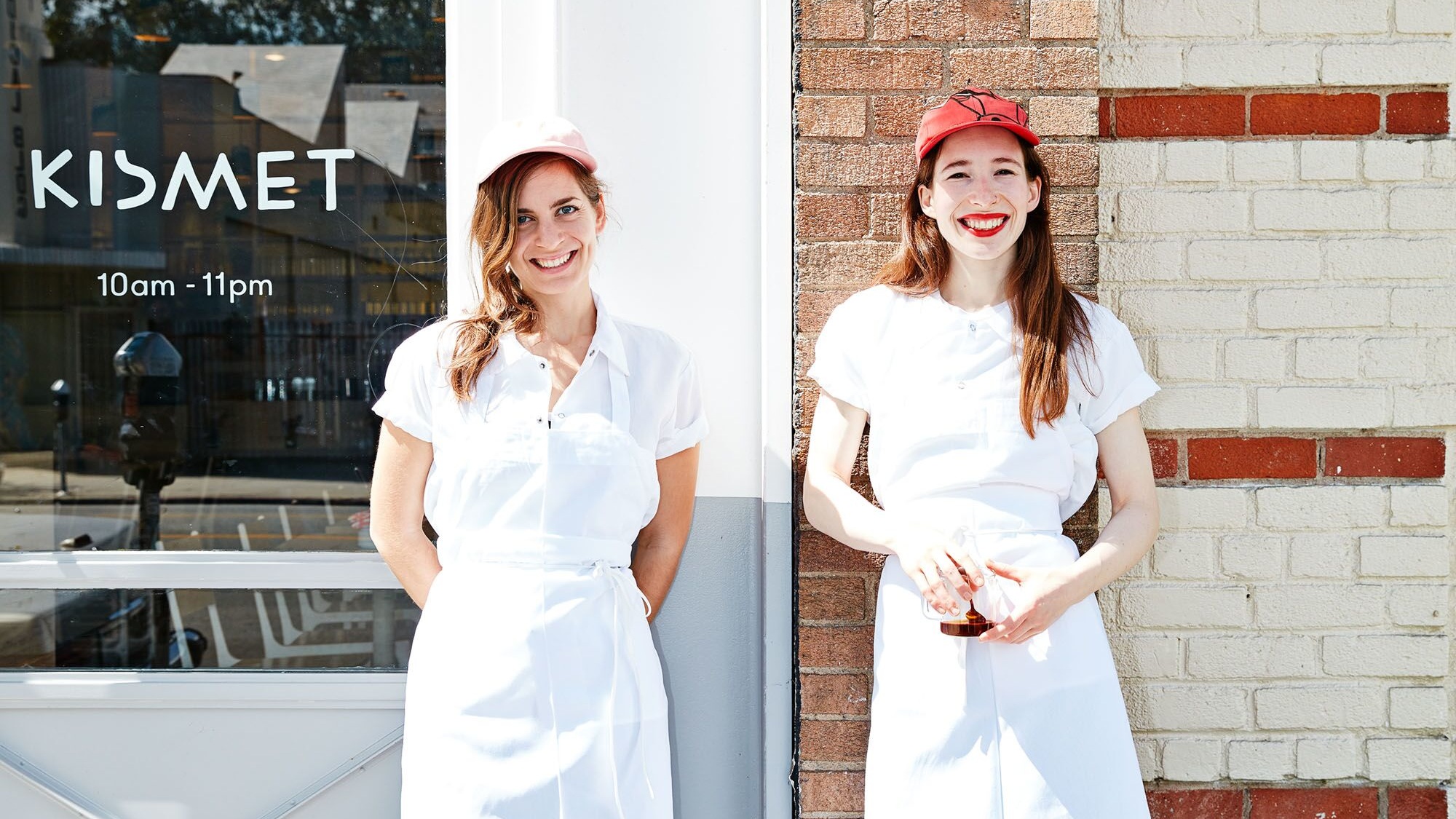
A Tale of Community and Kismet
Women of Food is a series highlighting the female chefs, operators, and industry folk who are shaping the restaurant world as we know it. We kick it off with Sara Kramer and Sarah Hymanson, the chef-owners of Kismet, an airy Los Feliz eatery soaring into its second year after having clinched the James Beard nomination for Best New Restaurant in 2018. In their effort to create a chef-driven neighborhood spot that’s elevated in food, innovative in culture, and welcoming to all, the pair is passionately pursuing creative opportunities to shine—from Off Menu Week LA to a new fast-casual project on the horizon.
It’s a tale of the times: a pair of creatives meet in New York where they’re honing their chops, link up, and ditch town to pursue their dream. Where do they land? Los Angeles, of course. It’s undeniable that the SoCal restaurant scene is searing hot, with novel concepts on the rise, exciting diners locally and afar, and acclaimed up-and-comers putting neighborhoods on the map. One eatery at the forefront of the frenzy is Kismet. Chefs Sara Kramer and Sarah Hymanson first worked together at Brooklyn’s Glasserie, a Mediterranean oasis located at the very tip of the borough, where fluffy grilled flatbreads serve as vessels for generous portions of delectable mezze. Kramer was the opening chef and Hymanson was her sous.
It was a “very spontaneous decision,” Kramer says of their move out west. “It felt like a really good opportunity. The city just felt very energetic, and it was an exciting time to be apart of the food community,” Hymanson adds. Like many first-time chef-owners, the duo was inspired by their formative restaurants, like Andrew Tarlow’s group in Brooklyn (Diner, Marlow & Sons, Roman’s), where Kramer had worked prior to Glasserie. For their own restaurant, they wanted to create a neighborhood locale with a strong sense of community, a feat that Tarlow has earned a rightful reputation for. But they had something he does not: the identity of chef—a shared perspective and kismet.
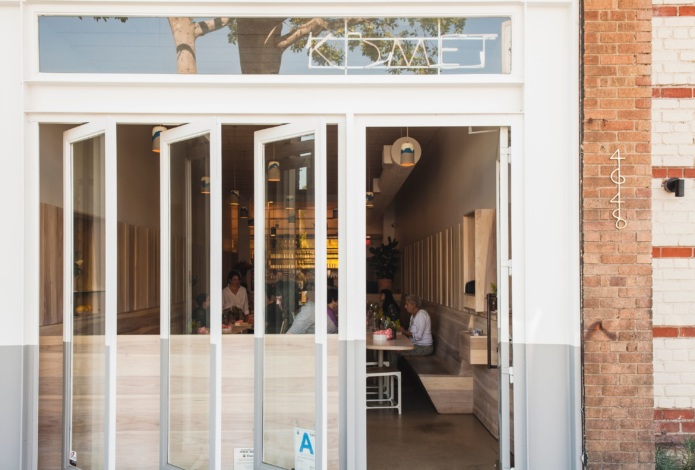
Before Kismet, there was Madcapra (now known as Kismet Falafel) in Downtown’s Grand Central Market. Along with vendors like Belcampo Meat Co. and Eggslut, its arrival signaled a rush of transformative, and very delicious, energy pulsing through the halls of the historic emporium. As Kramer and Hymanson dished out vibrant and textural falafel sandwiches, another pair of chef-operators more deeply entrenched in the LA food scene saw something in them. Soon after, Jon Shook and Vinny Dotolo decided to bring the chefs into their family of restaurants and help launch the duo’s first full-service spot.
To a diner’s eye, Kismet’s success has come somewhat naturally. Soon after opening, the late-great critic Jonathan Gold praised the cuisine for its “carefully layered flavors, the touches of heat, tartness and herbal intensity.” Craveable, complex dishes like broccoli toast with labneh, pumpkin seed, and pomegranate and jeweled crispy rice that oozes with egg yolk are the kind of staples that become fast favorites. And then there’s the culture, carefully crafted by a dynamic female partnership, that fuels it all.
“The idea of responsibility, in a grand overarching way, is one that we hold pretty close.” Kramer shares. “Both to each other as business partners, to employees, [and] to the diners who come in and trust us to be making responsible decisions regarding their food, which extends to sourcing and employment practices.”
The embodiment of these values is a team effort: it’s a hospitality tenet that they nurture in their staff, along with generosity—a trait that Kramer admits is in many ways innate—and it’s something they look for when they hire, “in a surpassable way but also in spirit.” Hymanson states, “We have an open door policy, so we’re always encouraging our staff to speak up about how they feel about policies and be a voice for making change in the restaurant.” Creating a pleasant space to work is not only a crucial component to Kismet’s overall vibe, but a business necessity.

Kismet operates on a gratuity-fee model that builds a 20% service charge into every guest’s bill. The decision stems, in part, from their experience as chefs. In Kramer’s words, “it’s an effort on our part, especially coming from a cook’s perspective, to equal out the wages between back- and front-of-house.” Diners nationwide have been privy to various attempts to tackle this issue, with restaurateurs adopting no-tipping models or tacking service charges into a diner’s bill. “Historically, tipping is a very discriminatory practice, so the more we can get away from putting the burden of paying our workers on the customer, [the better]. It [should be] the restaurant’s responsibility for paying our workers completely. And because that’s very expensive, we need to build it into the check. The way that we do that, so the restaurant doesn’t come across as so much more expensive compared to other restaurants at similar price points, is with a service charge as opposed to building it into the cost of the check,” Kramer explains. Hymanson, of course, agrees: “There are a lot of people that are trying to address the unsustainability of this industry and this is the path that we’ve taken to try and make some change.” The staff gets it, too. While members of the front-of-house team understand that they could make more money at a standard tipping establishment, they choose to work at Kismet because it’s such an enriching place to work. “That’s a reality that’s not lost on us,” Kramer says, “but I would rather have a situation where everyone’s happy. It fosters a better work environment.”
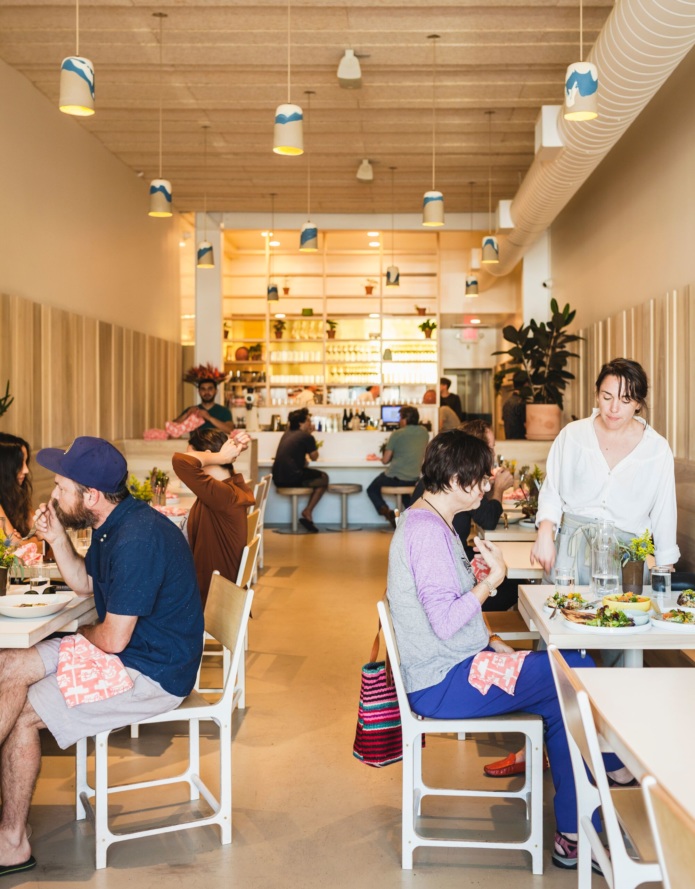
It’s only natural that the friendly faces of visiting New Yorkers often fill seats on Hollywood Boulevard. Otherwise, everyday regulars are a norm. Neighborhood folks have taken ownership over the space, including visitors from the Children’s Hospital nearby. “We have a lot of people in on their lunch break or after work [and] parents of sick children that come in for a bit of space. That always feels good that we can provide a little oasis,” Hymanson says. Even tourists feel immediately at home. They recently received an email from an Austrian couple that dined at Kismet twice during their visit to LA. “Her literal words in the email were ‘I don’t think I’ll ever be in another restaurant that’ll make me feel as happy as I did when I was there.’ That felt really, really special,” Kramer acknowledges. For Sara and Sarah, retention is “one of, if not the greatest” measure of success. They’re constantly inspired by the people they’ve been able to support and, in turn, inspire.
With Off Menu Week underway and Kismet Rotisserie (their fast-casual joint opening just next door) on the near horizon, you can expect the same emphasis on community to shine through. Diners can look forward to head-on shrimp in a chilli vinaigrette and a fresh take on patatas bravas plus perfectly cooked chicken paired with vegetable sides and hummus, respectively. Add to that the playfully casual, creative vision of two serious chefs and honest operators, and you’ll understand that there’s more than meets the stomach when you eat their food.



